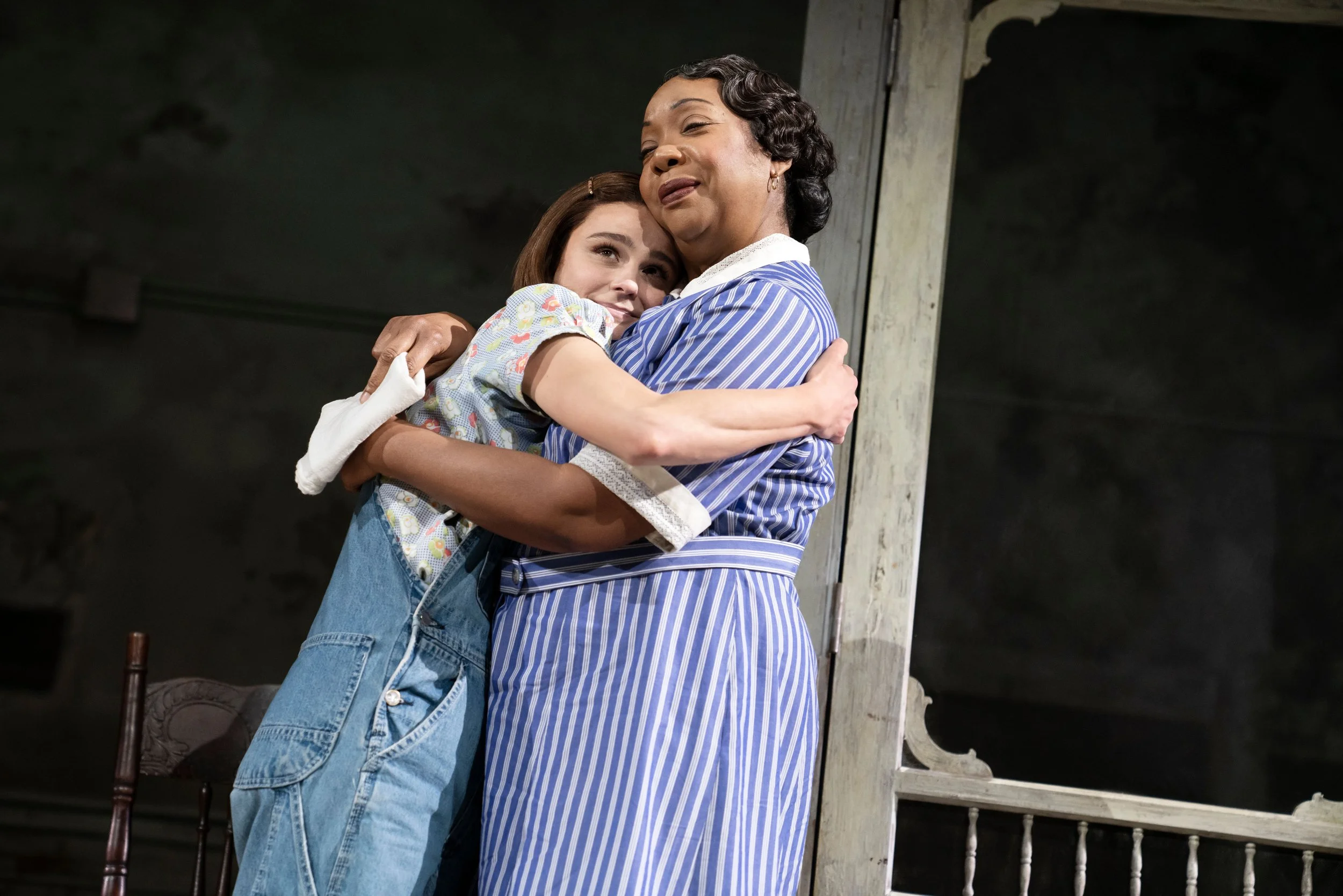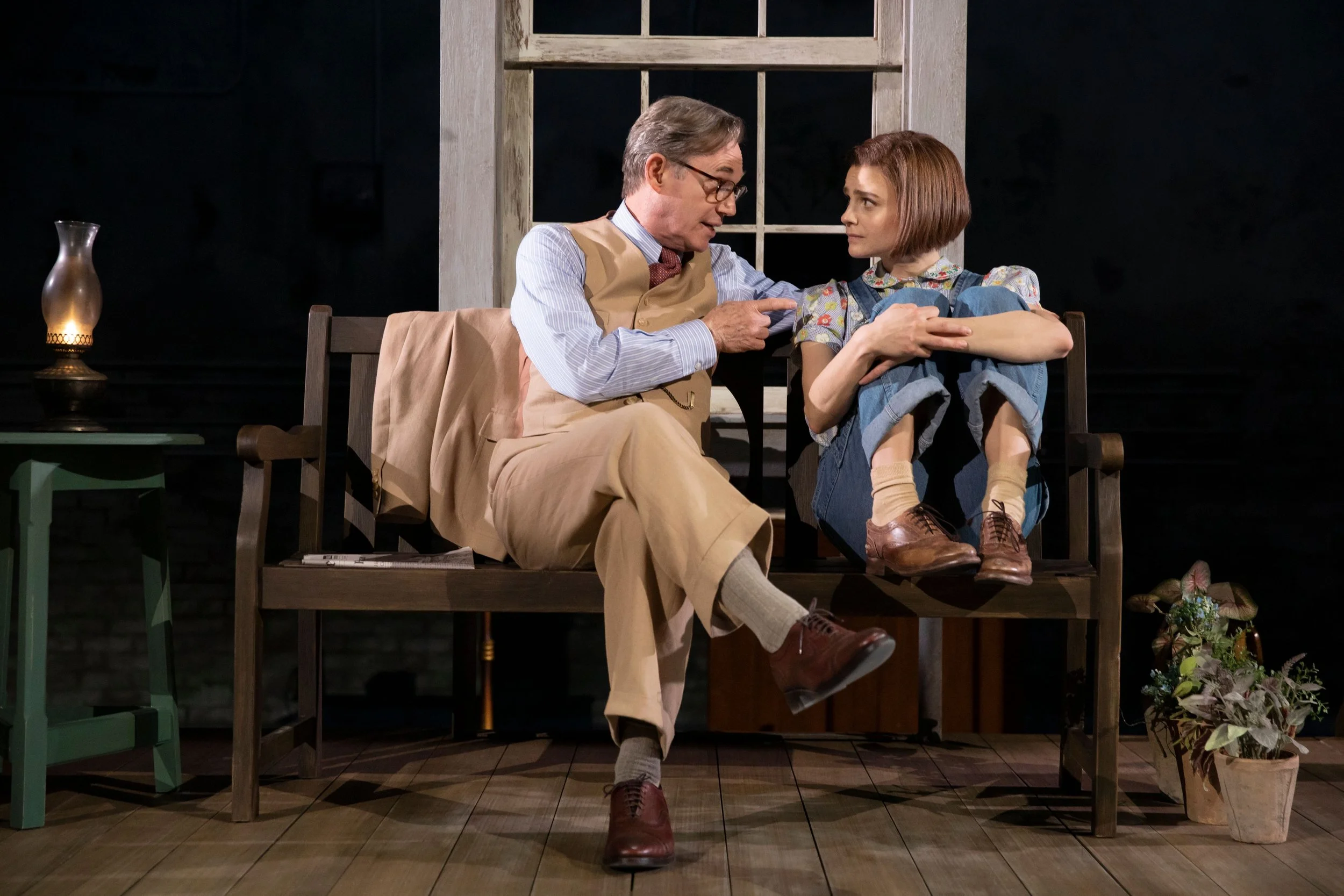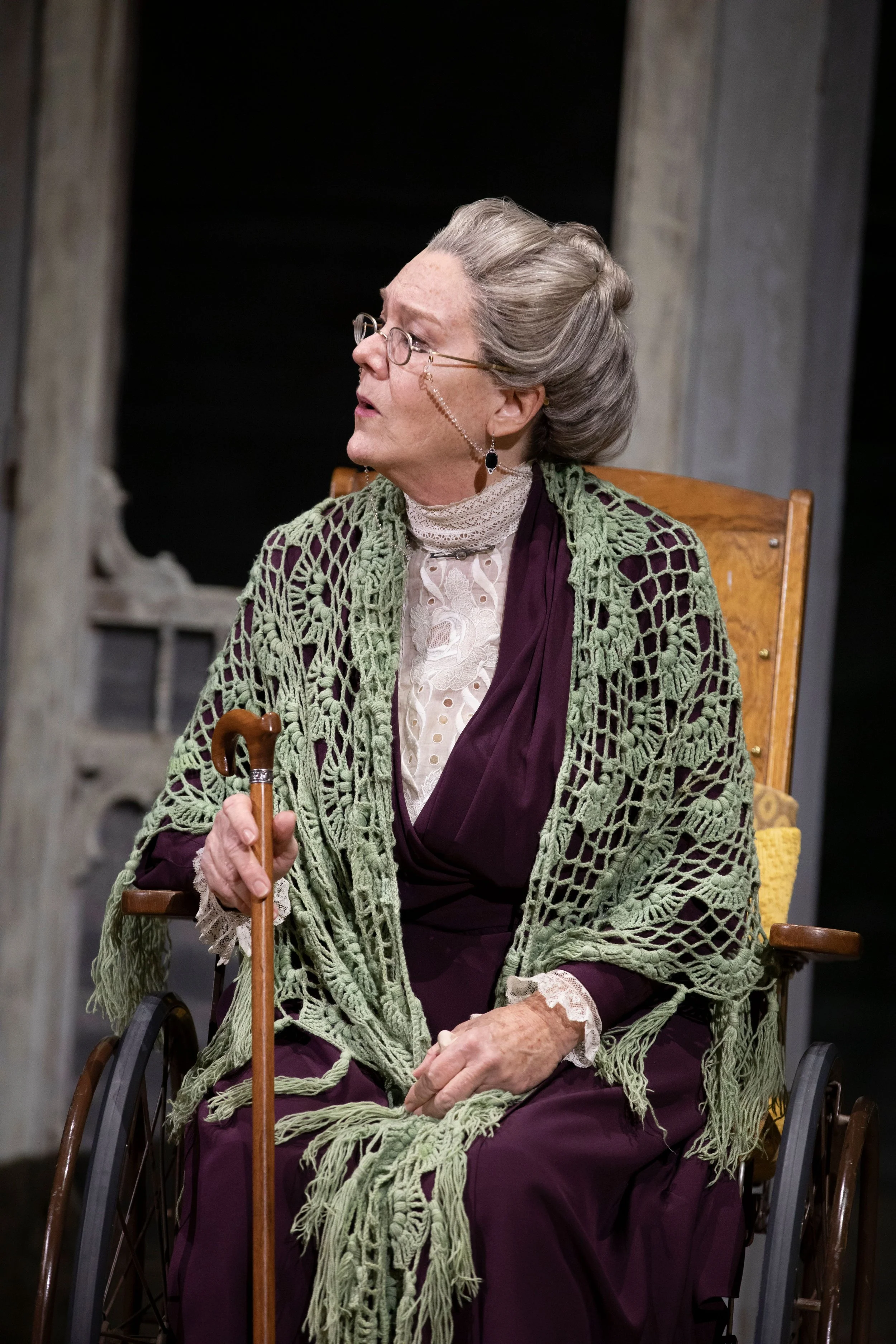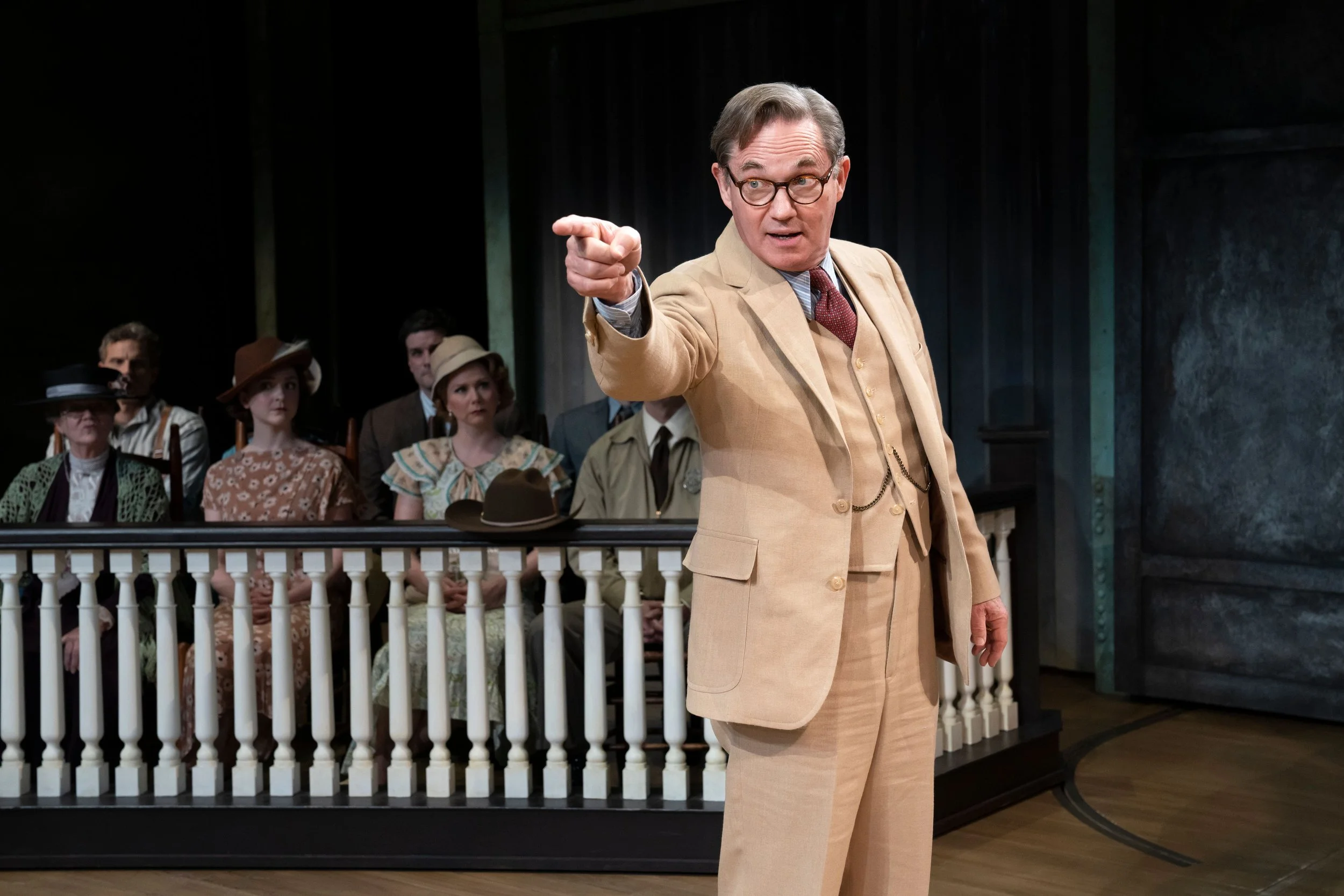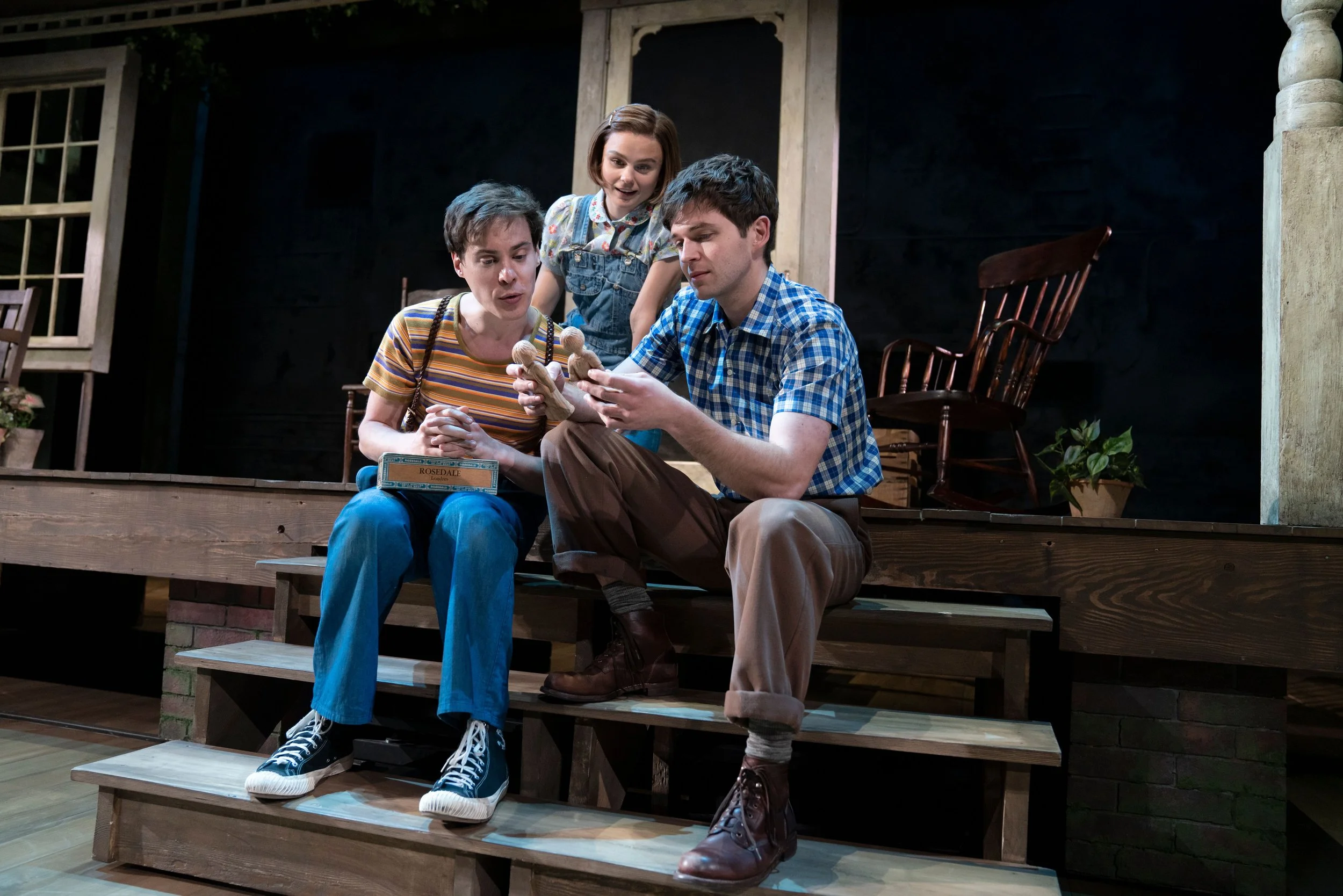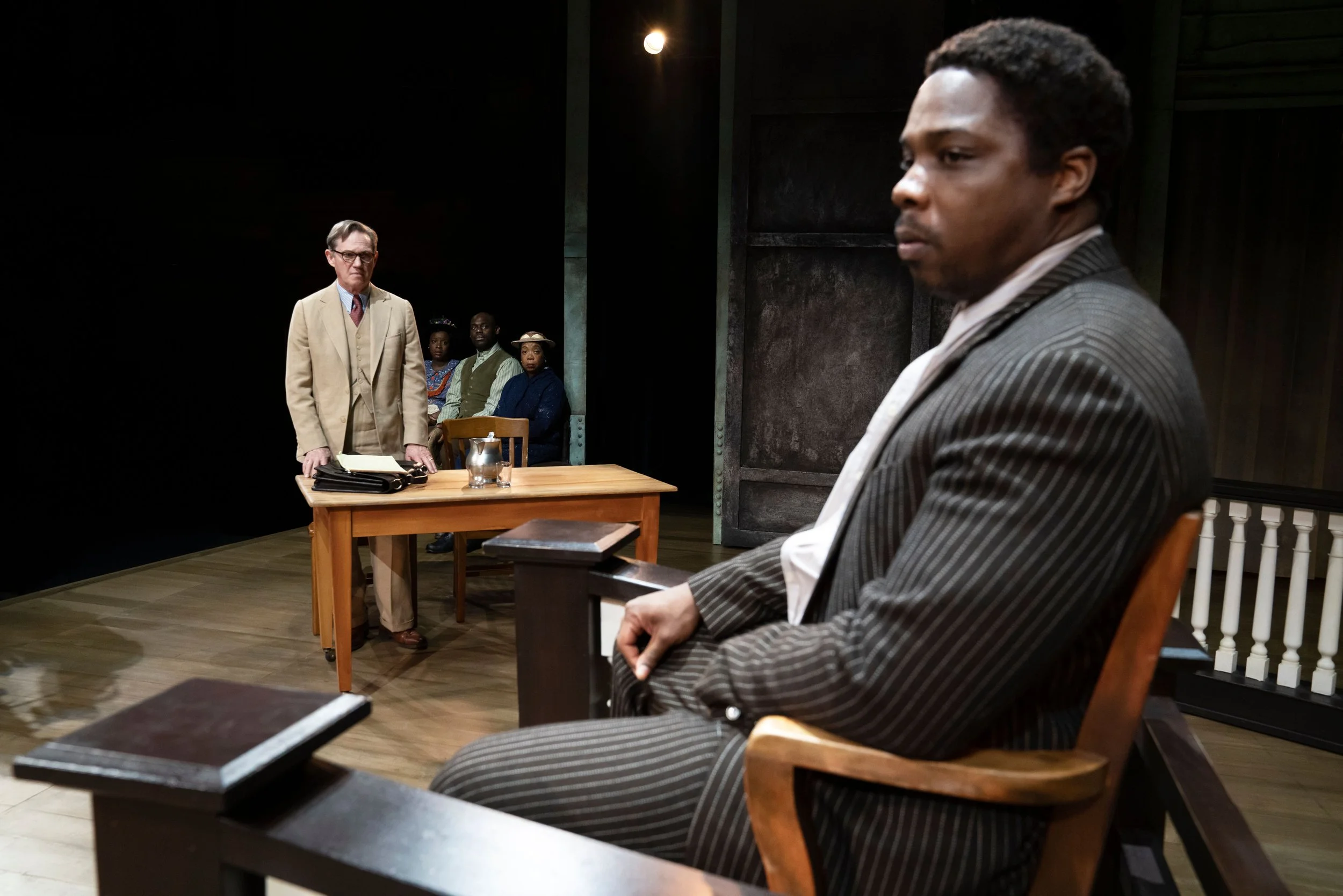To Kill a Mockingbird @ Broadway Dallas
Photos by Julieta Cervantes
—Jan Farrington
“We’ve got to heal this wound—or we’ll never stop bleeding!”
This is Atticus Finch—and also, of course, the much-loved Richard Thomas (“Goodnight, John Boy”)—suddenly throwing a law book at the “fourth wall” separating actors and audience, breaking through directly to all of us in the seats. We are no longer simply watching. We are being challenged.
Atticus Finch in our faces? Is it too much? I don’t think so—for me, it works.
After all, Atticus’ stage children, Scout and Jem and their summer friend Dill (Melanie Moore, Justin Mark, Steven Lee Johnson), have been doing the same thing throughout the play, acting as both the kids and the story’s narrators, coming front and center to comment on the action in this national tour of Aaron Sorkin’s adaptation of Harper Lee’s To Kill a Mockingbird.
Presented by Broadway Dallas at the Music Hall in Fair Park (BD’s first play-not-musical-etc. since 2017), Sorkin’s major tweak of the book and film script re-imagines the story. There are more laughs, for one thing—a given, isn’t it, with the playful, bantering Sorkin in charge?But Sorkin takes his task seriously, supporting Mockingbird as a classic, but adding to it a sense of all that’s happened in the decades since the 1930s, when it was set, and the 1960s, when it was written.
In other words, this is and isn’t your middle school TKaM. The bones of the story are intact; the structure is intentionally very different. The courtroom drama (in the book confined to the last chapters) is spread out in discrete segments from beginning to end, with scenes of the Finch’s home life (and the kids adventures) between them. Scenic designer Miriam Buether’s fluid, fast-changing sets allow these shifts in time and place, and are beautiful in themselves. (I especially love a through-view of the Finch home, each layer of walls a thin mesh that lets us see porch, living areas, back door in one glance.) Composer Adam Guettel’s background score (though it at times covers some dialogue) also lends a cinematic feel to the action. Ann Roth’s costumes are authentic, and Jennifer Tipton’s lights give a nice old-time glow to both the courtroom and the well-remembered scenes of Atticus, Scout, et al. on the porch.
But back to structure. For the most part, this episodic approach works, though it might be hard to follow for audience members new to the story. (Who are you people?) The most intense parts of the rape trial of Tom Robinson (Yaegel T. Welch) come through strongly, including the testimony of raging, racist father Bob Ewell (Joey Collins) and his angry daughter Mayella (Arianna Gayle Stucki). It’s impossible to see them now without hearing loud echoes of the MAGA voting base, seeing themselves as the disrepected, the left behind, the losers, the “mocked.” Mayella is enraged by Atticus calling her “Miss.” She’s sure he’s being sarcastic. They are in vivid contrast with Robinson’s quiet dignity and insistence on his innocence.
In a major change, Sorkin’s version gives space and power to Black voices in a way that feels necessary and balancing. Speaking for themselves are defendant Tom (Welch), and perhaps just as importantly the Finch’s housekeeper Calpurnia (Jacqueline Williams), whose connection to Atticus (observed by an older Scout) is more like that of sister to brother—banter, jokes, frank moments of anger and sarcasm. Atticus tells her that the people of Maycomb need more time to change their racist views. “How much time would Maycomb like?” asks Calpurnia dryly.
The supporting performances, from the children onward, are very well done. The actors playing the younger/older versions of Scout, Jem, and Dill effectively “sell” the illusions they are asked to create. The townspeople are memorable, from the straightforward sheriff Heck Tate (David Christopher Wells) to the much-tried Judge Taylor (David Manis) to town drunk (or is he?) Link Deas (Jeff Still). Boo Radley (Travis Johns) has a touching cameo at the end. Hint—he’s behind the door. And everyone was delighted to realize that old Mrs. Dubose (screeching at the kids from her porch) is played by Mary Badham, who at 10 years old was Scout in the film version. Badham got a rousing cheer at the end, both for the performance and for being “her.”
Richard Thomas’ Atticus is an engagingly less idealized version of the iconic character, and I’m so glad to have seen his performance. Between Thomas’ own naturally low-key and gentle manner, and Sorkin’s intention to write a “Mr. Finch” with all his flaws and limitations, a different, more human Atticus stands before us.
This is a compelling picture of a man trying to do the right thing at a hard time—to plant green things in stony ground. In some ways he succeeds (though not with Tom Robinson), but his patience and forbearance with the white people around him? Sixty years later, we’re still waiting to see if they will ever stop feeling like the victims in our black/white equation.
This Atticus is a struggling parent, too, with kids who judge him: Jem pushes back when he feels his father is cutting the town too much slack.
Still, We admire him because he’s a good, justice-seeking man at a time in the South when they weren’t easy to find. And we wonder: by 1980, what would Atticus Finch have learned? How would history have changed him? The script gives us a hint of the future in a comment on Atticus the public servant. By 2023, he would probably be long gone—but if not, what would he say about the racial history of our nation over the past 15 years?
Aaron Sorkin is asking questions, above and below the radar, using Harper Lee’s masterpiece as the starting point. They’re worth asking—because he knows, and we do too, that it’s not over.
WHEN: May 16-28, 2023
WHERE: The Music Hall at Fair Park, Dallas
